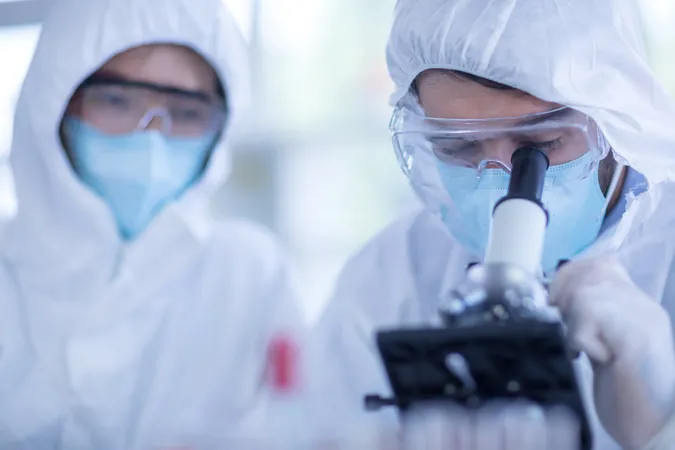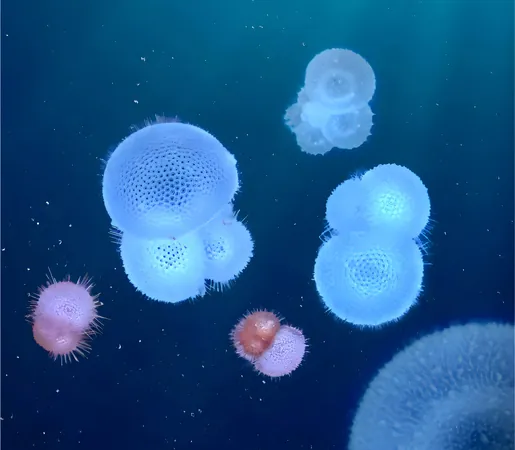
Revolutionary Hybrid Cells Created by Japanese Scientists: Can They Transform the Future of Sustainable Food?
2024-11-10
Author: Li
Revolutionary Hybrid Cells Created by Japanese Scientists: Can They Transform the Future of Sustainable Food?
In an astonishing scientific breakthrough, researchers in Japan have developed plant-animal hybrid cells capable of generating their own energy from sunlight. This innovative advancement could fundamentally change the landscape of lab-grown meat and organ production, as detailed in a groundbreaking study published in the Proceedings of the Japan Academy, Series B.
The newly created cells are a fascinating combination of plant and animal characteristics, enabling them to harness solar energy like plants do through photosynthesis, while also incorporating features typical of animal cells. Traditionally, plants and animals have distinct methods of energy production; plants rely on photosynthesis using chloroplasts, while animals utilize mitochondria. This hybridization presents an unprecedented opportunity to blend the best of both worlds.
The researchers began their ambitious project by isolating chloroplasts from plant cells and merging them with hamster cells. Their aim was to cultivate these hybrid cells, effectively creating tissue that operates on solar power. Over a two-day cultivation period in the laboratory, they monitored the cells for uptake of chloroplasts by examining chlorophyll presence. This involved using a specialized laser that activates chlorophyll under specific light wavelengths, allowing the researchers to visualize the chloroplasts within the animal cells.
To their astonishment, they confirmed the presence of chlorophyll and chloroplasts inside the hamster cells. Furthermore, a technique known as amplitude modulation fluorometry verified that the chloroplasts were indeed engaged in photosynthesis. Remarkably, the hybrid solar-powered tissue demonstrated a growth rate that was faster than that of conventional hamster cells.
This discovery not only showcases the potential for sustainable food production but also opens doors to new applications in regenerative medicine. As the demand for lab-grown meats and organs continues to rise, this innovation could pave the way for more eco-friendly and efficient food sources while alleviating ethical concerns associated with traditional meat production.
Could we soon see a world where our food supply and organ transplants are powered by the sun? As research continues to advance in this exciting field, the possibilities seem endless. Stay tuned for more developments that could change how we view nutrition, sustainability, and biotechnology forever!




 Brasil (PT)
Brasil (PT)
 Canada (EN)
Canada (EN)
 Chile (ES)
Chile (ES)
 España (ES)
España (ES)
 France (FR)
France (FR)
 Hong Kong (EN)
Hong Kong (EN)
 Italia (IT)
Italia (IT)
 日本 (JA)
日本 (JA)
 Magyarország (HU)
Magyarország (HU)
 Norge (NO)
Norge (NO)
 Polska (PL)
Polska (PL)
 Schweiz (DE)
Schweiz (DE)
 Singapore (EN)
Singapore (EN)
 Sverige (SV)
Sverige (SV)
 Suomi (FI)
Suomi (FI)
 Türkiye (TR)
Türkiye (TR)